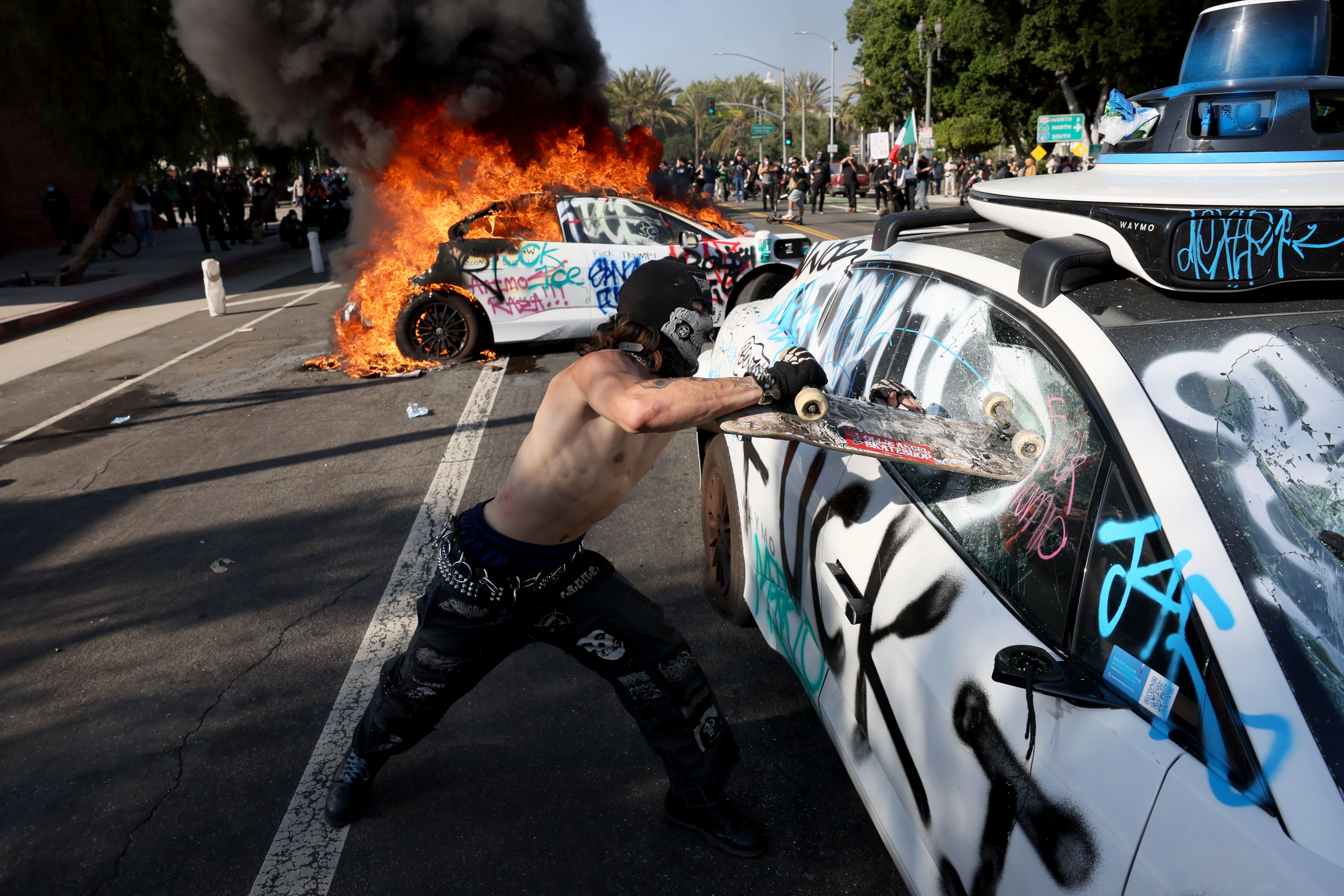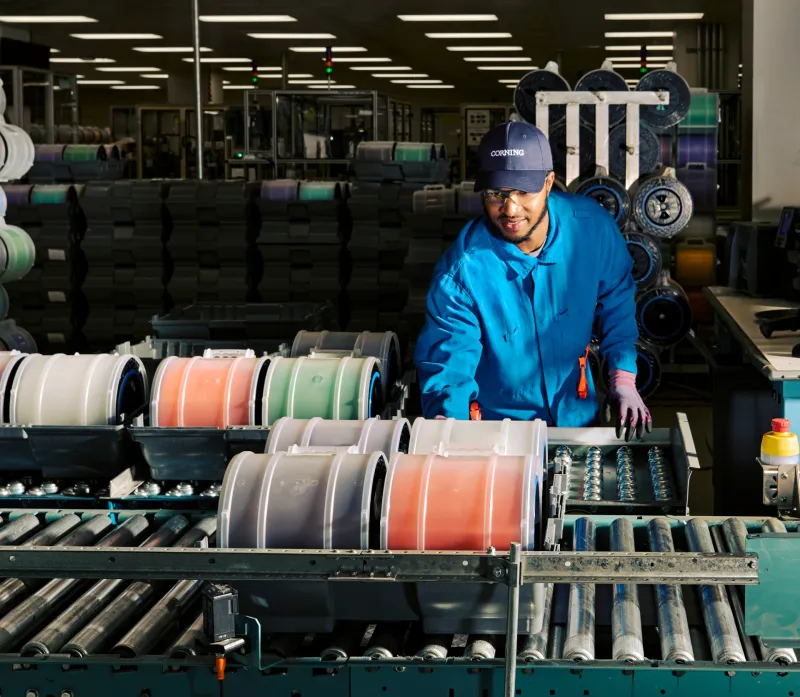In a dramatic escalation of ongoing civil unrest, several self-driving cars were set on fire during protests in Los Angeles over the weekend. The incident, which occurred in the downtown area on Saturday night, has sparked a renewed debate around the role of autonomous vehicles in society, public safety concerns, and the growing tensions between technology and community priorities. According to eyewitnesses and viral videos circulating on social media, at least three driverless cars—reportedly operated by two prominent autonomous vehicle companies—were targeted by protestors during a large demonstration. Protesters blocked intersections, spray-painted slogans on the vehicles, and ultimately torched them, leading to dramatic scenes of flames and smoke in the middle of city streets.
Authorities confirmed that no injuries were reported, and the fires were extinguished before they could spread to nearby buildings or infrastructure. However, the symbolic nature of the act has sparked a firestorm of commentary online and offline. For some, the destruction of the cars represented a cry against gentrification, automation, and the displacement of labor. For others, it highlighted the failure of policymakers and tech companies to address growing public anxiety around AI and job security. The incident marks one of the first known cases of widespread vandalism targeting autonomous vehicles during a public protest in the United States. Los Angeles, known for its congested traffic and evolving transportation infrastructure, has been a testbed for several autonomous vehicle trials. Companies like Waymo, Cruise, and others have been operating pilot programs in specific LA neighborhoods, with a mix of reactions from residents.

Read Also: Fat Joe & Jadakiss share UNTOLD stories of Tupac and The Notorious B.I.G

Experts say that while these vehicles promise a future of safer, more efficient transport, they also symbolize deeper societal shifts—ones that are not always welcomed with open arms. Critics argue that the rapid deployment of driverless technology threatens thousands of jobs, particularly those held by ride-share drivers, delivery workers, and transport professionals, many of whom are already vulnerable to economic instability. Adding to the complexity is the perception that tech companies are pushing automation without adequately engaging the communities most affected. In neighborhoods already grappling with housing insecurity, income disparity, and racial inequities, self-driving cars may be seen less as a marvel of progress and more as another reminder of displacement and exclusion.
City officials have called for calm and are working with both protest organizers and technology stakeholders to investigate the incident and prevent future violence. The Los Angeles Department of Transportation issued a statement condemning the destruction but acknowledged the “urgent need for inclusive dialogue around the integration of emerging technologies in our urban environments.” Meanwhile, some tech executives have responded with cautious statements emphasizing their commitment to safety, transparency, and equitable innovation. However, public trust in these assurances remains fragile, especially as concerns around AI ethics, surveillance, and employment continue to rise globally.
Social scientists suggest that what happened in Los Angeles is not just an isolated act of vandalism but a warning sign. As more cities introduce AI-driven systems into public life—from policing to public transport—the need for community-first planning, human-centered design, and transparent communication becomes more critical than ever. The burning of self-driving cars in LA could serve as a pivotal moment—a reflection of societal tension at the intersection of technology and humanity. While autonomous vehicles may eventually revolutionize transportation, their future success will depend not just on innovation, but on inclusion, empathy, and public trust.
Uphorial.



